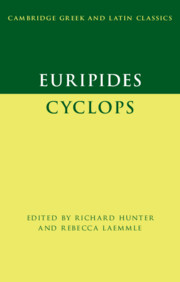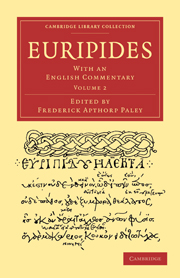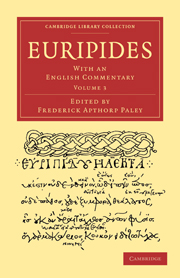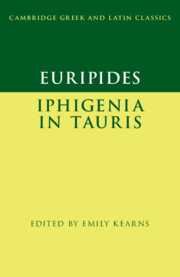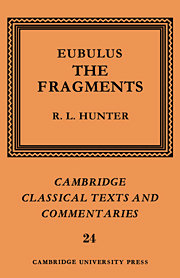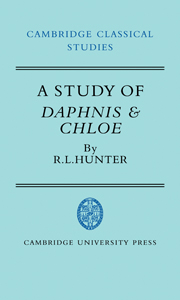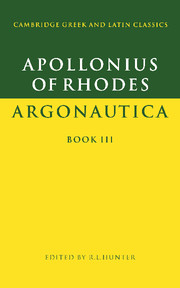Euripides: Cyclops
Euripides' Cyclops is the only example of Attic satyr-drama which survives intact. It is a brilliant dramatisation of the famous story from Homer's Odyssey of how Odysseus blinded the Cyclops after making him drunk. The play has much to teach us, not just about satyr-drama, but also about the reception and adaptation of Homer in classical Athens; the brutal savagery of the Homeric monster is here replaced by an ironised presentation of Athenian social custom. Problems of syntax, metre and language are fully explained, and there is a sophisticated literary discussion of the play. This edition will be of interest to advanced undergraduates and graduate students studying Greek literature, as well as to scholars.
- The first full commentary on the play in English for four decades
- Provides extensive linguistic help for student readers in particular
- The Introduction and Commentary provide a detailed account of the play considering textual, linguistic, historical and literary issues
Reviews & endorsements
'this edition of Cyclops … is consistently informed by breadth and depth of learning and is engagingly written. It continually unearths further riches which the play has to offer, and enhances the reader's understanding of this truly intriguing drama on a number of levels. Students and scholars, then, will welcome this excellent contribution to the ongoing groundswell of interest in satyric drama' Bryn Mawr Classical Review
Product details
July 2020Hardback
9781316510513
278 pages
222 × 142 × 18 mm
0.43kg
2 b/w illus.
Available
Table of Contents
- Introduction
- Sigla
- ΕΥΡΙΠΙΔΟΥ ΚΥΚΛΩΨ
- Commentary

